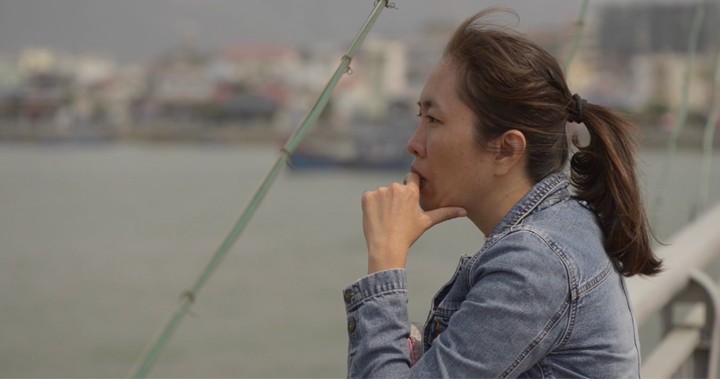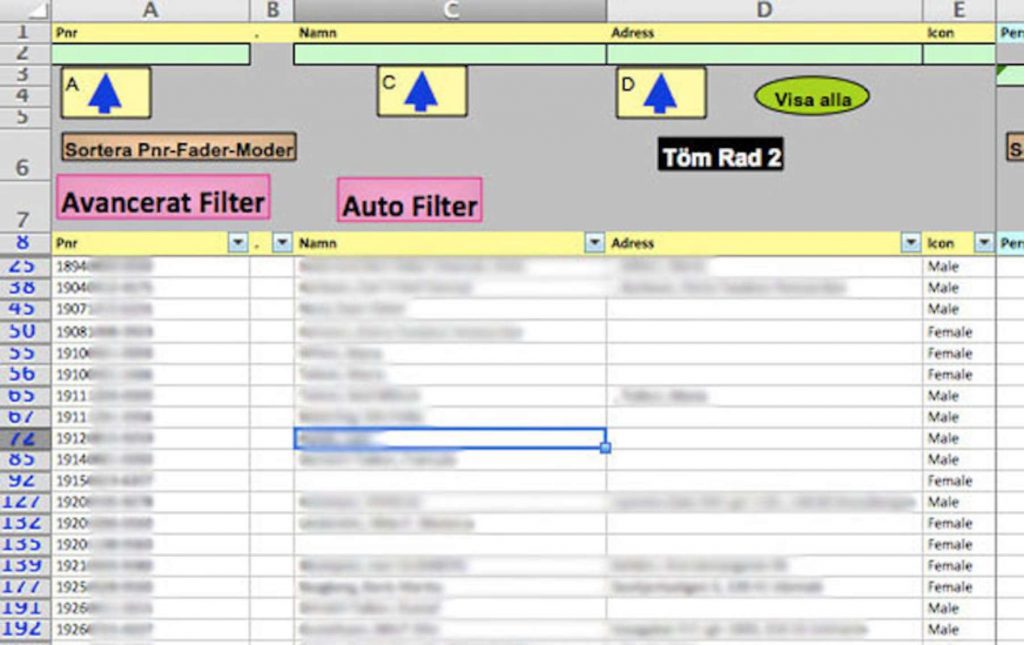Lines in the Sand

This is the second of three parts of the Innovation Initiative’s Special Series on Digital Rights entitled “Digital Rights and Civil Rights Defenders”. This series will present how Civil Rights Defenders has worked with digital rights in the past in order to predict how we may treat them in the future. Click here to read the first part of this series.
Digital rights are human rights that are applied to the digital sphere. The fight for digital rights is the fight for human rights, because digital rights are human rights. Civil Rights Defenders has on many occasions championed this position and fought to secure everyone’s digital rights. Below are three out of the many examples of cases that we have either driven ourselves or publicly supported. Together, they serve to outline where Civil Rights Defenders draws the line on violations of digital rights.
Roma Registry
In March 2015, Civil Rights Defenders filed suit against the Swedish state. The reason? The Swedish newspaper Dagens Nyheter had revealed that the police administration in Skåne (a region in South Sweden) was keeping a register of approximately 4700 Roma individuals. An investigation conducted by the Swedish Commission on Security and Integrity Protection had concluded that the police register was illegal and that the people identified in it were subject to compensation. However, what it failed to mention, was the real reason why the register was wrong.

It was illegal, yes, but the law is never the last word on ethics. The real reason why the registry was unethical, and unlawful, was because the individuals listed had been registered on the basis of their ethnicity. This was a clear and direct violation of their human rights; specifically of Article 7 of the Universal Declaration of Human Rights (UDHR), which states that: “All are equal before the law and are entitled without any discrimination to equal protection of the law”. This human right extends naturally to the digital realm, because it was that medium that was used to maintain the registry. In this case, it was the right to freedom from discrimination that was under fire. The medium is of lesser relevance. Therefore, digital rights are not some entity separate from human rights but rather a natural extension of human rights into an emerging medium.
Mother Mushroom
Nguyễn Ngọc Như Quỳnh, or Mother Mushroom as she is known online, is a Vietnamese blogger and human rights defender who is famous for speaking out against injustices, corruption and human rights abuses in Vietnam.
In 2015, she was awarded the Civil Rights Defender of the Year Award. Tragically, she was arrested in 2016 by the Vietnamese government and sentenced to a ten-year imprisonment in 2017. We followed her case closely, advocating for her release, and were thrilled when she was let go in October of this year. Mother Mushroom is an advocate of Article 19 of the UDHR, which states that:
“Everyone has the right to freedom of opinion and expression; this right includes freedom to hold opinions without interference and to seek, receive and impart information and ideas through any media and regardless of frontiers.”
The phrase “through any media” is of special significance in this case. It references all conceivable ways of transmitting opinion and expression, which necessarily includes both ink scratched onto paper and data transmitted through cyberspace. Mother Mushroom’s incarceration is a blatant violation of her digital rights and that is one of several reasons that Civil Rights Defenders have fought so earnestly for her cause. Because her cause is our cause. And as she is now forced to live in exile, it continues to be our cause.
Venezuela’s Smart-card ID
In April 2008, former Venezuelan President Hugo Chávez sent officials to visit China and learn the workings of China’s citizen control programs. Ten years later Venezuela is rolling out a new, smart-card ID that transmits data about cardholders to the government. The card is increasingly being required by the government for basic services like subsidised food, health, and other social programs that most Venezuelans rely on to survive.
Currently, Venezuela is experiencing hyperinflation and widespread shortages of food and medicine. According to a Reuters article, over half the Venezuelan population has already signed up for the new cards.
“To encourage its adoption, the government has granted cash prices to cardholders for performing civic duties, like rallying voters. (…) The government now says Venezuelans need it to receive public benefits including medicine, pensions, food baskets and subsidised fuel.”
A chilling example of this force came in the case of Benito Urrea, who is a 76-year-old diabetic. His doctor denied him an insulin prescription on the basis that his lack of enrolment betrayed his “right-wing” leanings. Urrea does not describe himself as right-wing, but he does see the card as an attempt to control his political behaviour via his medical needs. Venezuela’s current president, Nicolás Maduro, consistently urges citizens to enrol for the card. He has publicly thanked China for its help in establishing this system and has proclaimed that he will continuously work to integrate the ID into public infrastructure until it is needed for “everything”. The same digital rights concerns that were raised against China’s social credit system are also relevant in this context. And systems like this are spreading.
With technology advancing as fast as it is, it is no wonder that authoritarian actors are utilising it to strengthen their grip and widen their net. It is high time for all actors on the side of human rights to clearly support digital rights and to fight back. Stay tuned for next week’s post where we will share what we’re currently doing, why, and what we hope to achieve in the coming years…


